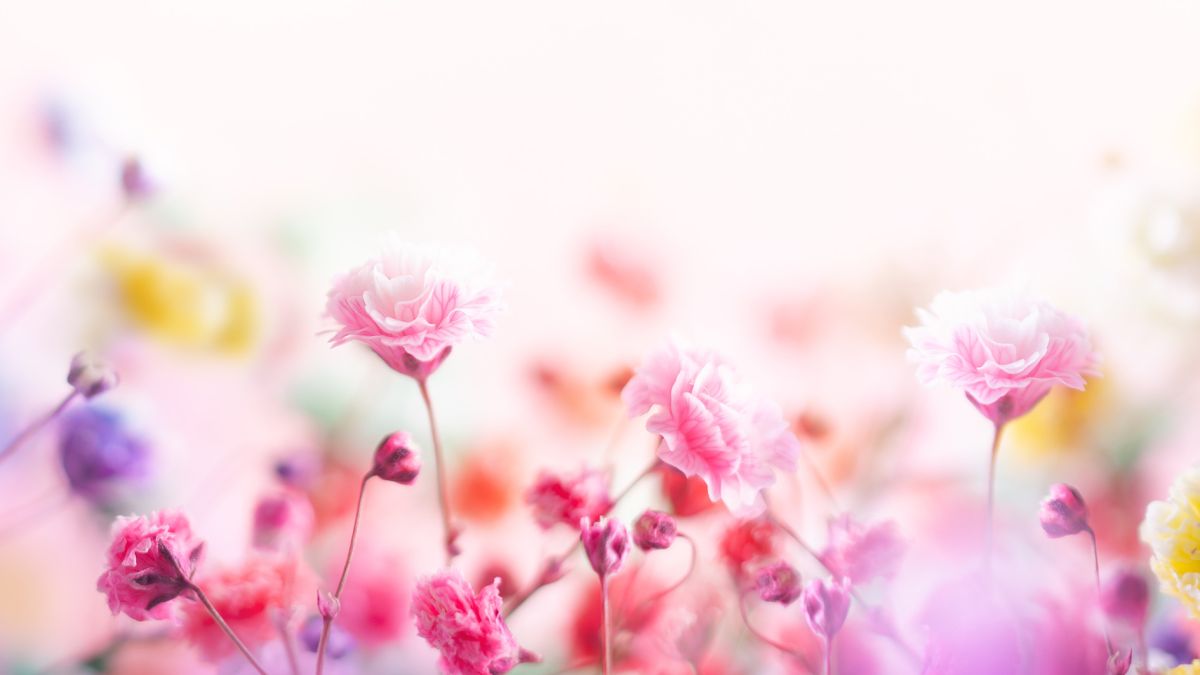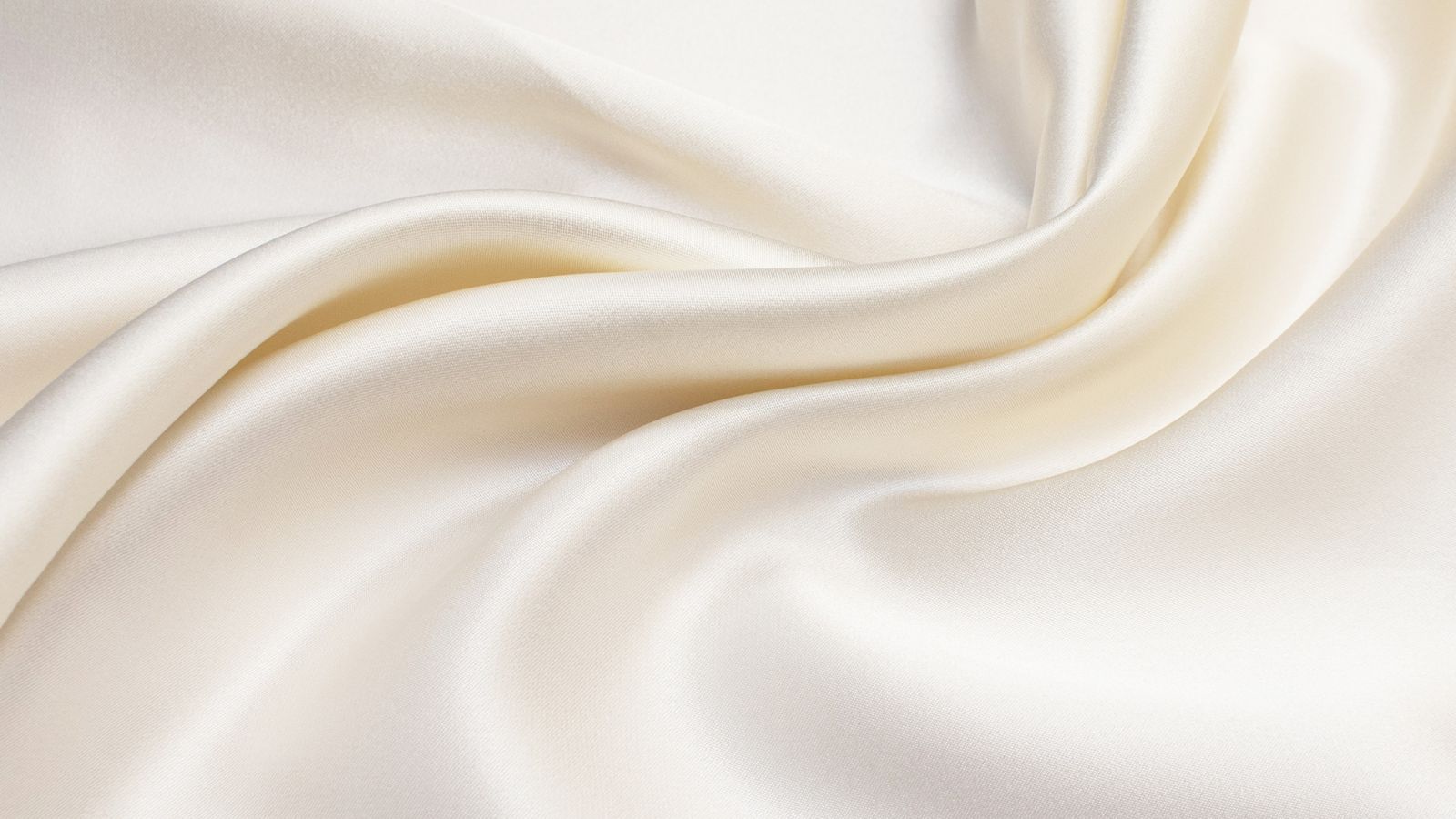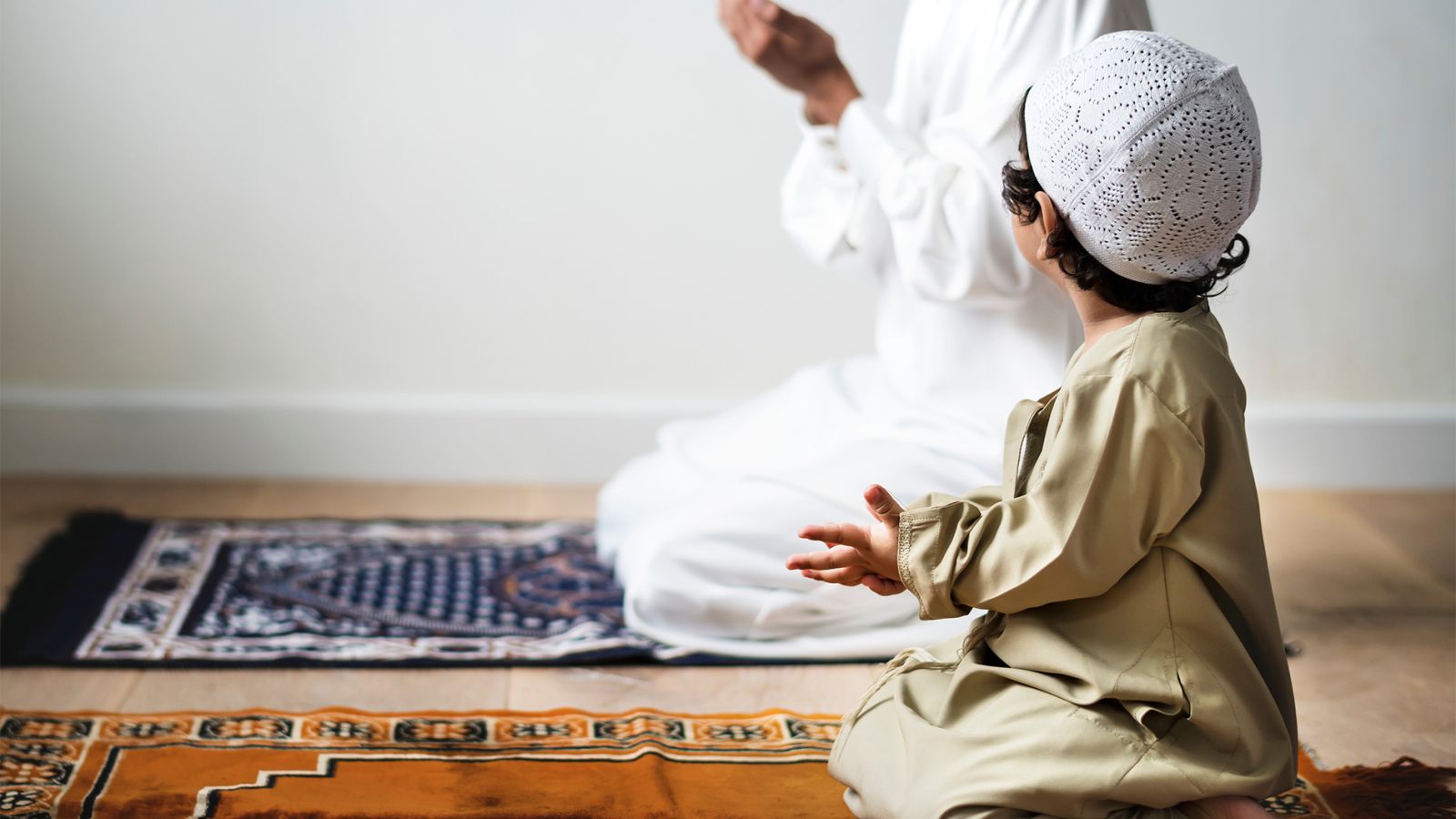

Therefore, we see that the Ḥijāb of the Muslim woman has a quality that comprises Ḥayā ͗ (modesty). Ḥayā ͗ is what proceeds from Īmān (belief).
Indeed, all praises are due to Allāh, we praise Him, seek His Aid and beg for His Forgiveness. We seek refuge in Allāh from the evil in our souls and from the bad consequences of our deeds. Whomever Allāh guides, no one can lead that person astray and whomever Allāh leads astray no one can guide that person. I bear witness that there is nothing worthy of worship except Allāh Who is alone and without any partners and I bear witness that Muḥammad (ﷺ) is His slave and final Prophet and Messenger sent to mankind.
Certainly, the most perfect speech is the Speech of Allāh and the finest guidance is the guidance of Muḥammad (ﷺ). The worst of affairs are those that are innovated into this religion as every innovation is misguidance and every misguidance is astray and every going astray leads to the Hell Fire.
It often occurs to me that many of my sisters in Islām are not properly encouraged once they begin to observe the requirements of Ḥijāb. It may be that a sister has been obliged to wear the Ḥijāb without truly pondering over its superiority. Perhaps she has reached the age of puberty and her Wali (guardian) has instructed her to wear it. Perhaps she has recently reverted to Islām and her close sisters have told her of its obligation. Or, perhaps her husband has commanded her to wear Ḥijāb. A sister who does not truly know the superiority of Ḥijāb will always remain envious of the women of the Kufār. Why? Because they see these misguided women looking beautiful for all to see. Hence, the Muslim woman then compares herself to that woman which causes her to feel ashamed of her own Ḥijāb.
Therefore, what follows is a reminder for my sisters in Islām. It is a reminder of the true status of these so-called beautiful women. It is a reminder that Ḥijāb will always reign supreme and that the true man (i.e. the Muslim man), will forever be dazzled by the beauty of the Muhijabah (woman who wears the Ḥijāb).
Some Excellent Qualities of Those Who Wear Ḥijāb
Al-Hamdulilah, it is well known that the Muslim woman is a creature of ḥayā (modesty). Allāh loves for our Muslim women to be shielded by their Ḥijāb. It is their outer protection from the decadence of this life. Allāh’s Messenger (ﷺ) has said:
“Verily! Allāh is ḥayā (modest, bashful) & Sittīr (i.e. the One Who Shields – from disobedient acts). He loves ḥayā (i.e. He loves for one to practice modesty and bashfulness) and Siter (shielding; covering).” (Collected by Abū Dāwūd; An-Nissa’ee; al-Bayḥaqi; Aḥmad; & in Ṣaḥīḥ An-Nissa’ī)
Thus, as possessing ḥayā is a quality that is beloved by Allāh our sisters must feel comfort in knowing that they have this ḥayā and not the women who show themselves to the world; hence, such women will not be shielded from Allāh’s Wrath.
Allāh’s Messenger said:
“Any woman who takes off her clothes in other than her husband’s home (to show off for unlawful purposes), has broken Allāh’s shield upon her.” (Collected by Abū Dāwūd & Al-Tirmidhī)
Therefore, we see that the Ḥijāb of the Muslim woman has a quality that comprises ḥayā (modesty). ḥayā is what proceeds from Iman (belief). That is why when Allāh commands the women to observe Ḥijāb, Allāh says:
“And tell the believing women…”
[Sūrah Al-Nur 24:31]
Allāh also says:
“…And the women of the believers…”
[Sūrah Al-Aḥzāb 33:59]
Furthermore, Allāh’s Messenger (ﷺ) said:
“Al-ḥayā (modesty & bashfulness) is from Iman (belief) and Iman is in Al-Jannah (the Paradise).” (Al-Tirmidhī – Ṣaḥīḥ)
He (ﷺ) also said:
“ḥayā (modesty and bashfulness) and Iman (belief) are fully associated together, if one is lifted the other follows suit.” (Narrated by ‘Abd Allāh ibn ʿUmar; related by Al-Ḥākim in his “Mustadrak”)
My dear sisters in Islām, know that these women who beautify themselves for the world to see possess no ḥayā; thus, they are void of any Iman. Instead of looking to the latest fashion models for guidance, you, my dear sisters, must look to the wives of the Prophet (ﷺ). Look at the extreme amount of ḥayā that ‘Āʿishah ibnt Abū Bakr (raḍī Allāhu ʿanhu̧ possessed even in the presence of the deceased:
‘Āʿishah (raḍī Allāhu ʿanhu said: “I used to enter the room where the Messenger of Allāh (ﷺ) and my father (Abū Bakr) were later buried in without having my garment on me, saying it is only my husband and my father. But when ʿUmar ibn Al-Khattab (raḍī Allāhu ʿanhu was later buried in (the same place), I did not enter the room except that I had my garment on being shy from ʿUmar.” (As-Simt Ath’amīn Fee Maniqib Ummahat Ul-Mu’mineen by Ibn As-Sakir. Al-Ḥākim brings a similar narration which he says is “good according to the conditions of Imām Bukharī and Imām Muslim”)
My dear sister in Islām, I know that it is quite difficult for you to go out wearing Ḥijāb in a society that mocks and torments you. I know that you, indeed, feel strange and out of place. However, if you knew the status of those who are mocked by the Kufār as well as the status of the strangers, you will continue to wear your Ḥijāb (i.e. to cover your entire body with a Khimar as commanded (24:31), as well as with a Jilbab (33:59), with the exception of the hands and face; however, knowing the recommendation to cover those parts (as well) with dignity. Allāh (subḥānahu wa-taʿālá) says in His Book:
“Verily! (During the worldly life) those who committed crimes used to laugh at those who believed. And whenever they passed by them, used to wink one to another (in mockery); And when they returned to their own people, they would return jesting; and when they saw them, they said: ‘Verily! These have indeed gone astray!’ But they (disbelievers, sinners) had not been sent as watchers over them (the believers). But on this Day (the Day of Resurrection) those who believe will laugh at the disbelievers. On (high) thrones, looking (at all things). Are not the disbelievers paid (fully) for what they used to do?”
[Sūrah Al-Mutaffifin 83:29-36]
Allāh’s (subḥānahu wa-taʿālá) words should serve as a support for you my dear sisters. Also, take comfort in being a stranger among these lewd and sinful women. Allāh’s Messenger (ﷺ) said:
“Islām began as something strange, and it would revert to its (old position) of being strange, so good tidings for the strangers.” (Narrated by Abū Hurayrah and Reported Ṣaḥiḥ Muslim)
As-Sufūr and Its Characteristics
As-Sufūr means to expose or to un-cover. Therefore, instead of practicing the Ḥijāb (covering), the women of the Kufār practice As-Sufoor. As-Sufoor is sinful as it leads to al-Tabarrūj (i.e. to make a dazzling display of oneself). Displaying oneself is an attribute of one who is Jahīl (ignorant). Allāh (subḥānahu wa-taʿālá) says:
“And stay in your houses and do not display yourselves (al-Tabarrūj) like that of the times of ignorance…”
[Sūrah Al-Aḥzāb 33:33]
Allāh’s Messenger (ﷺ) said:
“The best of your women is the affectionate, the fertile (in productivity), the propitious (favorable), the consultative if they fear Allāh. The most evil of your women are the Mutabar’rijat (those who do al-Tabarrūj), the Mutakhayelat (who strut/swagger), and they are the hypocrites. Those who enter Al-Jannah (the Paradise) are like the Cough Crow.” (al-Bayḥaqi in his “As-Sunan”)
My dear sisters in Islām, we see from the above Ayah and Hadith that displaying oneself is indeed Haram. Further, it is a quality of the most evil of women! Therefore, do not be envious of the women of the Kufār. They only have this life to enjoy while the believing women will have Al-Jannah. There is nothing in your Ḥijāb whatsoever to be ashamed of as it is the garment of the righteous and pious female slaves of Allāh (subḥānahu wa-taʿālá). In order to truly show you how evil those women who make As-Sufoor and al-Tabarrūj are, let us ponder over the following statement of Allāh’s Messenger (ṣallallāhu ʿalayhi wa-sallam):
“Of the people of Hell there are two types whom I have never seen, the one possessing whips like the tail of an Ox and they flog people with them. The second one, women who would be naked in spite of their being dressed, who are seduced (to wrong paths) and seduce others. Their hair is high like the humps (of camels). These women would not get into Al-Jannah (the Paradise) and they would not perceive its odor, although its fragrance can be perceived from such and such a distance.” (Ṣaḥiḥ Muslim)
Sisters in Islām, these women who practice al-Tabarrūj are common among us today. These are women that even the Prophet ṣallallāhu ʿalayhi wa-sallam did not see! Look around you and you will see those women who are clothed but naked! Look at the hair styles of the women who practice al-Tabarrūj – are they not high like the camel’s hump? My dear sister, perhaps we are the first generation since the time of the Prophet Ādam (AS) to witness such women. If one ponders over photos taken thirty to forty years ago, one will see that the women of the Kufār did not make al-Tabarrūj as their offspring do today. These are women who will be in the Hell Fire, save Allāh (subḥānahu wa-taʿālá) has mercy upon them by guiding them to Islām! Thus, how can you envy them? My brothers, how can you desire them over your creature of ḥayā? These filthy women will not even smell the fragrance of Paradise. This Hadith also shows us that what the Prophet (ﷺ) came with (i.e. the Qur’an and the Sunnah) is the Ḥaqq (truth)! This is a prophecy that has come to pass in front of our very eyes. Hence, will we continue to envy these evil women or be grateful to our Lord for your Ḥijāb which brings ḥayā?
Whatever I have written that is true is from Allāh alone while anything that is false is from myself and shayṭān. Subhānaka Allāhummah wa bihamdika, ash hadu an la illaha illa anta, astaghfiruka wa atubū ilayk

















